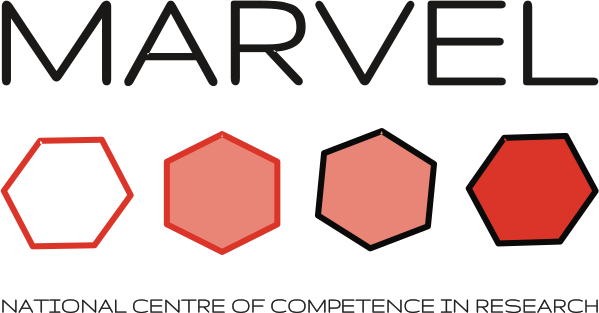The aiida-quantumespresso package is an AiiDA plugin for running calculations and workflows with the Quantum ESPRESSO software suite.
Installation
You can install aiida-quantumespresso in your Python environment using pip:
$ pip install aiida-quantumespresso
Note that this command will also install the aiida-core package as one of its dependencies.
For more information on how to install AiiDA and the required services in different environments, we refer to the aiida-core documentation.
Compatibility
For an overview of the plugin’s compatibility with Python, AiiDA and Quantum ESPRESSO, please refer to the README.md of the repository.
Getting Started
A good place to get started with running Quantum ESPRESSO calculations using AiiDA is the AiiDA Quantum ESPRESSO tutorial on the main AiiDA tutorials page. You can either run the tutorial in your own installation if completed, or use the resources mentioned there, i.e. the Quantum Mobile virtual machine or AiiDAlab demo cluster.
Warning
The documentation is currently undergoing a major revision, but likely still contains some outdated content. If you find any material that you think is incorrect, please open an issue on the GitHub repository.
Contents
Indices and tables
Acknowledgements
If you use this plugin and/or AiiDA for your research, please cite the following work:
Sebastiaan. P. Huber, Spyros Zoupanos, Martin Uhrin, Leopold Talirz, Leonid Kahle, Rico Häuselmann, Dominik Gresch, Tiziano Müller, Aliaksandr V. Yakutovich, Casper W. Andersen, Francisco F. Ramirez, Carl S. Adorf, Fernando Gargiulo, Snehal Kumbhar, Elsa Passaro, Conrad Johnston, Andrius Merkys, Andrea Cepellotti, Nicolas Mounet, Nicola Marzari, Boris Kozinsky, and Giovanni Pizzi, AiiDA 1.0, a scalable computational infrastructure for automated reproducible workflows and data provenance, Scientific Data 7, 300 (2020)
Martin Uhrin, Sebastiaan. P. Huber, Jusong Yu, Nicola Marzari, and Giovanni Pizzi, Workflows in AiiDA: Engineering a high-throughput, event-based engine for robust and modular computational workflows, Computational Materials Science 187, 110086 (2021)
We acknowledge support from:
The NCCR MARVEL funded by the Swiss National Science Foundation. |
|
The EU Centre of Excellence “MaX – Materials Design at the Exascale” (Horizon 2020 EINFRA-5, Grant No. 676598). |
|











0 Comments